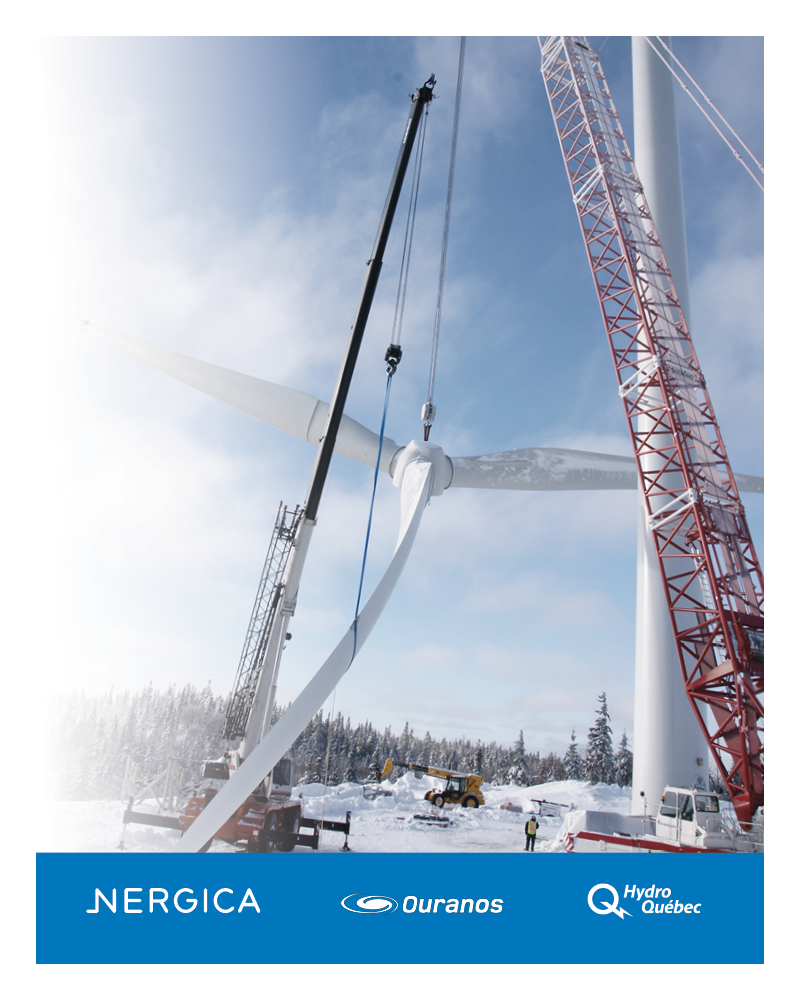In the current context of the global climate crisis, increased integration of renewable energies stands as one of the most promising pillars of the energy transition. Wind energy in particular has a paramount role to play in the energy transition. However, to ensure its sustainability, it is essential to assess whether climate change poses a risk to its performance and economic viability.
Nergica, in collaboration with Ouranos and Hydro-Quebec, conducted a five-year study to analyze the impact of climate change on wind power potential in North America. The impact of climate changes on wind, icing, and wind energy production was analyzed by comparing a future period (2031-2060) to a historical period (1981-2010). This study is the first to take into account the impact of icing on wind energy production in Canada, thus adding an essential dimension to the evaluation of future wind potential in cold climate.
The results are reassuring: wind energy production should remain relatively stable over the next few decades, thus strengthening the relevance of the wind sector for Canada’s energy future.
Highlights of the study:
– This study shows that, in terms of wind regimes and ice conditions for the future period (2031-2060), climate change will not have significant adverse impacts on Canada’s wind power production.
– The study allows decision-makers to better gauge the risks associated with climate change on the wind industry and to take well-informed decisions for the promising future of this renewable energy source.
– These results allow Canadian grid operators to improve their long-term wind planning and increase reliability.
– This study confirms that wind power will continue to play a central role in Canada’s energy future and contribute to net-zero targets for the electricity grid by 2035 against a backdrop of growing energy demand.
Auteur.e.s : Nigel Swytink-Binnema, Marilys Clément, Hélène Côté, Dominique Paquin, Éric Desrosiers, Guillem Candille

